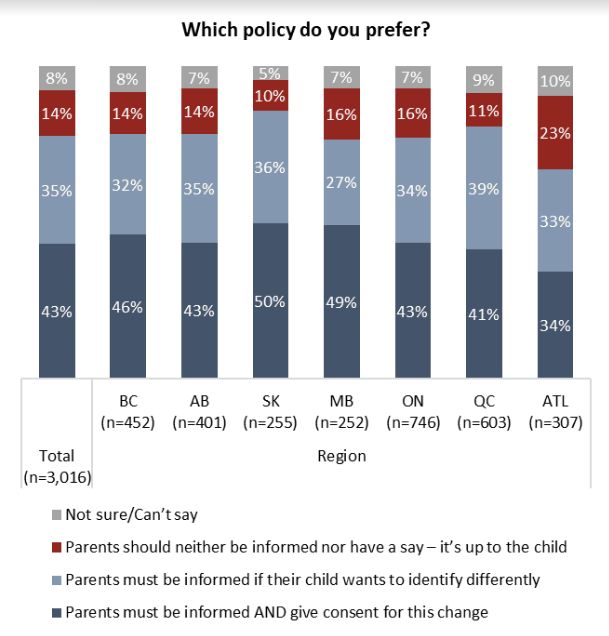Last week Saskatchewan joined New Brunswick in adopting a new gender and pronoun policy for schools, which would require parental consent for students who wish to change their preferred name or pronouns.
Vociferous debate has followed in both provinces, and a new study from the non-profit Angus Reid Institute finds Canadians, too, divided on what level of parental involvement is necessary when it comes to children’s preferred identification.
Asked which policy they prefer for school districts, two-in-five Canadians (43%) say that parents should be informed and must give consent if a child wants to change how they identify. One-in-seven (14%) say that the parent should have no role in this decision. In between these two groups, another one-in-three (35%) feel that parents should be made aware of any changes that are happening at the school but that these changes should not require parental consent. Those Canadians with children younger than 18 feel more strongly about consent than those without school-aged children (48% to 41%).
Generationally, Canadians hold at times divergent views. Consider that those between the ages of 18 and 24 are twice as likely as the general population (28% to 14%) and three-times as likely as those older than 64 years of age (10%) to say that this is not an issue parents should necessarily be involved in.
In Saskatchewan, higher levels of support for both informing parents and requiring consent are noted (50%). This, likely given the population’s more conservative lean. Those who supported the Conservative Party of Canada in the 2021 federal election are twice as likely as past Liberal voters (64% to 30%) and three times as likely as past NDP voters (20%) to say parents’ consent is needed if a child wishes to change their gender identity in school. A majority of all partisans agree that parents should be informed, but many disagree as to whether consent is necessary.





